Filter by

Market institutions in Sub-Saharan Africa :theory and evidence
An analysis of recent data on the economic behavior of market institutions in sub-Saharan Africa, with implications for future research and current policy.In Market Institutions in Sub-Saharan Africa, Marcel Fafchamps synthesizes the results of recent surveys of indigenous market institutions in twelve countries, including Benin, Ghana, Kenya, Madagascar, Malawi, and Zimbabwe, and presents find…
- Edition
- -
- ISBN/ISSN
- 9780262272452
- Collation
- 1 online resource (xx, 521 pages) :illustrations.
- Series Title
- -
- Call Number
- -
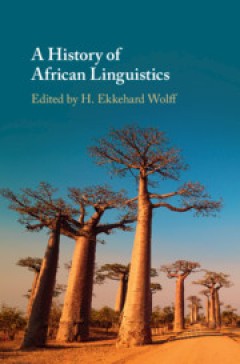
A History of African Linguistics
Bringing together a team of leading scholars, this volume forms the first global history of African linguistics as an autonomous academic discipline, covering Africa, America, Asia, Australia, and Europe. Defining African linguistics, the volume describes its emergence from a 'colonial science' at the turn of the twentieth century in Europe, where it was first established mainly in academic ins…
- Edition
- -
- ISBN/ISSN
- 9781108283977
- Collation
- -
- Series Title
- -
- Call Number
- -
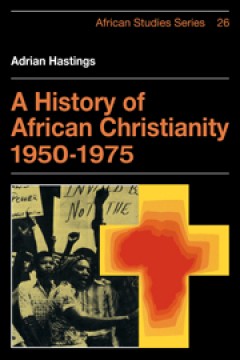
A History of African Christianity 1950–1975
The churches in Africa probably constitute the most important growth area for Christianity in the second half of the twentieth century. From being a number of rather tightly controlled 'mission fields' zealously guarded by the great missionary societies, Catholic and Protestant, they have emerged across the last decades in bewildering variety to selfhood, a membership of close on a hundred mill…
- Edition
- -
- ISBN/ISSN
- 9780511563171
- Collation
- -
- Series Title
- African Studies
- Call Number
- -

What Do Science, Technology, and Innovation Mean from Afrika?
Explorations of science, technology, and innovation in Africa not as the product of “technology transfer” from elsewhere but as the working of African knowledge. In the STI literature, Africa has often been regarded as a recipient of science, technology, and innovation rather than a maker of them. In this book, scholars from a range of disciplines show that STI in Africa is not merely th…
- Edition
- -
- ISBN/ISSN
- 9780262342322
- Collation
- -
- Series Title
- -
- Call Number
- 608.76
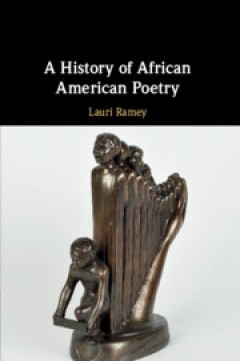
A History of African American Poetry
African American poetry is as old as America itself, yet this touchstone of American identity is often overlooked. In this critical history of African American poetry, from its origins in the transatlantic slave trade, to present day hip-hop, Lauri Ramey traces African American poetry from slave songs to today's award-winning poets. Covering a wide range of styles and forms, canonical figures l…
- Edition
- -
- ISBN/ISSN
- 9781139548939
- Collation
- -
- Series Title
- -
- Call Number
- -
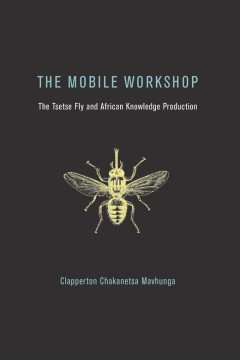
The Mobile Workshop: The Tsetse Fly and African Knowledge Production
ow the presence of the tsetse fly turned the African forest into an open laboratory where African knowledge formed the basis of colonial tsetse control policies. The tsetse fly is a pan-African insect that bites an infective forest animal and ingests blood filled with invisible parasites, which it carries and transmits into cattle and people as it bites them, leading to n'gana (animal trypan…
- Edition
- -
- ISBN/ISSN
- 9780262345859
- Collation
- -
- Series Title
- -
- Call Number
- 595.76
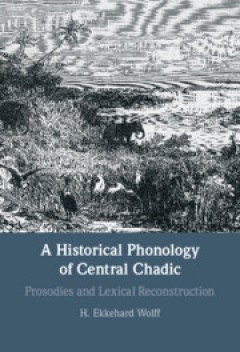
A Historical Phonology of Central Chadic
Of all of the African language families, the Chadic languages belonging to the Afroasiatic macro-family are highly internally diverse due to a long history and various scenarios of language contact. This pioneering study explores the development of the sound systems of the 'Central Chadic' languages, a major branch of the Chadic family. Drawing on and comparing field data from about 60 differen…
- Edition
- -
- ISBN/ISSN
- 9781009024310
- Collation
- -
- Series Title
- -
- Call Number
- -
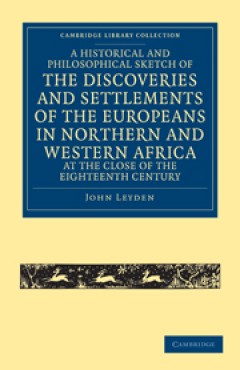
A Historical and Philosophical Sketch of the Discoveries and Settlements of t…
lthough he had never set foot in Africa, Scottish poet and linguist John Leyden (1775–1811) decided to publish in 1799 this compilation on 'discoveries and settlements' there, drawing from the published works of explorers. His aim was 'to exhibit the progress of discoveries at this period in North and West Africa', giving descriptions of places such as Guinea, the Gold Coast, and Sierra Leone…
- Edition
- -
- ISBN/ISSN
- 9781139058759
- Collation
- -
- Series Title
- Cambridge Library Collection - African Studies
- Call Number
- -
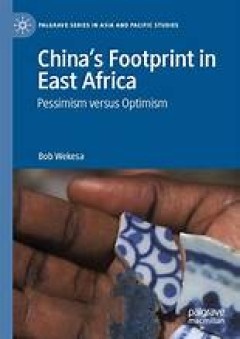
China’s Footprint in East Africa
Based on an extensive literature review, in-depth interviews, fieldwork, and anecdotal evidence, this text examines China’s engagement with East Africa (notably Rwanda, Burundi, Kenya, Tanzania, and Uganda) and considers these relationships through the lens of history, diplomacy, education, trade, media, cultural exchanges, and infrastructure. It probes the sentiments of pessimism, optimism, …
- Edition
- 1
- ISBN/ISSN
- 978-981-99-5265-6
- Collation
- politik
- Series Title
- -
- Call Number
- 324

Integrating Local Farmers Knowledge Systems in Rainfall Prediction and Availa…
- Edition
- -
- ISBN/ISSN
- 978-1-83962-629-6
- Collation
- -
- Series Title
- -
- Call Number
- -
 Computer Science, Information & General Works
Computer Science, Information & General Works  Philosophy & Psychology
Philosophy & Psychology  Religion
Religion  Social Sciences
Social Sciences  Language
Language  Pure Science
Pure Science  Applied Sciences
Applied Sciences  Art & Recreation
Art & Recreation  Literature
Literature  History & Geography
History & Geography